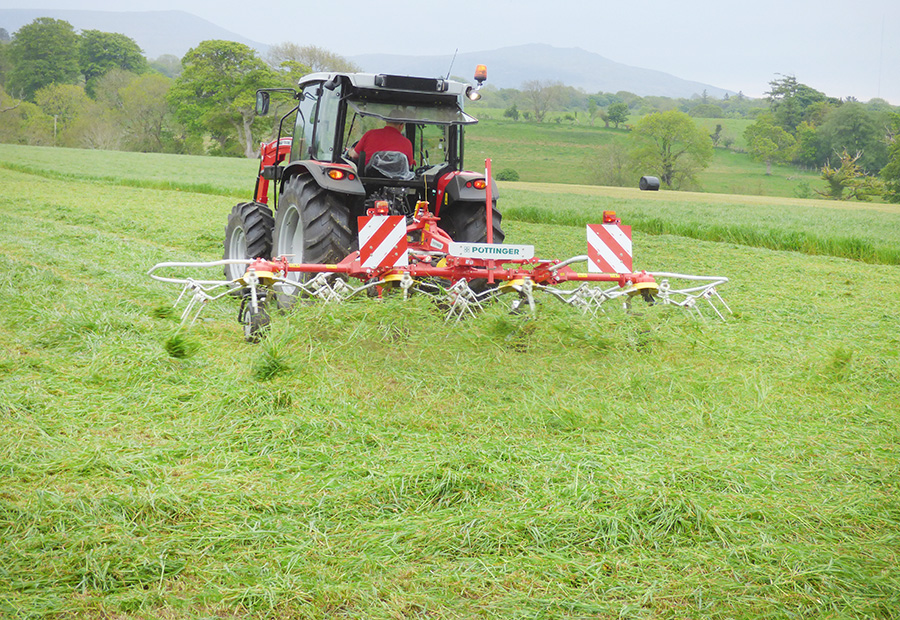Wilt rapidly to reduce dry matter losses from silage
22nd June 2020
Dry matter losses are costing UK farmers an average of £25/tonne DM. But simple changes to silaging practices could help cut this cost.

Dry matter losses are costing UK farmers an average of £25/tonne DM. But simple changes to silaging practices could help cut this cost.
Dave Davies, from Silage Solutions, who recently spoke about silage making as part the Alltech Navigate webinar series, explains how rapid wilting can help reduce dry matter losses from silage.

Dave Davies of Silage Solutions
“Hot and dry conditions, which most of us have been experiencing this spring, give farmers the opportunity to quickly wilt grass after cutting,” he says. “A rapid wilt with a target of 30% DM as quickly as possible and no longer than 24 hours, is the ‘gold standard’ to make sure that grass is dry enough to go into the clamp while avoiding unnecessary losses of digestible nutrients. As soon as grass is cut, quality proteins start breaking down while sugars are converted to carbon dioxide and water by respiration. This decreases the proportion of digestible material going into the clamp.”
Dave explains that target dry matter content should be about 30%, but even if conditions are not ideal, there is little to be gained by leaving cut grass in the field for longer.
“Yeasts and moulds start to multiply, which can lead to issues with aerobic spoilage at feed-out and mycotoxin contamination,” he adds.
Alltech north region sales manager Bob Kendal, who spoke in the same webinar, stresses the importance of getting the timing right when cutting, and achieving the right density in the clamp, to reduce dry matter losses.

Alltech north region sales manager Bob Kendal
“Delaying a cut, even just by a week, can mean cutting after the crop starts going into reproductive phase, resulting in less regrowth and reduced dry matter yield over the course of the season,” says Bob. “Similarly, a high density of 750kg/m3 of fresh matter in the clamp will reduce the amount of oxygen present and help create an anaerobic environment for fermentation to occur. This will significantly reduce losses of digestible matter due to sugars breaking down by respiration, improving the efficiency of the process.”
The Navigate webinar series, can be accessed by registering here: https://go.alltech.com/uk/navigate/webinar-series
